
Article by Zoe Samios, courtesy of the Financial Review.
Every time an Olympic Games comes around, Aussie Home Loans founder John Symond asks John Coates for his predictions.
Coates, who will step down as vice president of the International Olympic Committee later this year, was bullish before Paris 2024: his tip was between 17 and 20 golds and between 55 and 60 in total. He was nearly on the money.
Australia’s Olympic team won 53 medals including 18 gold, 19 silver and 16 bronze. It was the country’s best-ever Olympic Games, in terms of gold medals won, beating the record set in Athens 2004 and repeated three years ago in Tokyo.
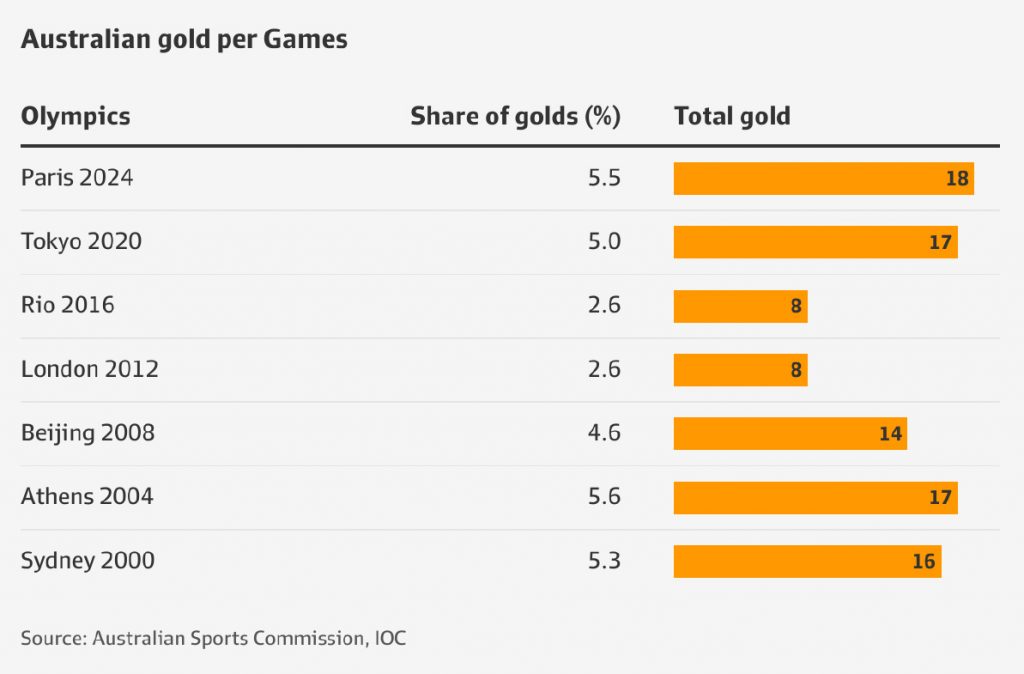
“They have done exceptionally well,” Coates says. “The good news for Australia is about 50 per cent of the team are first-timers, which bodes very well for the next two Games.”
There were plenty of milestones – skateboarder Arisa Trew became the youngest-ever Australian gold medallist, and athletes Jess Fox, Matt Wearn, Keegan Palmer, Ariarne Titmus and Kaylee McKeown won back-to-back individual gold medals.
Australia also won its first men’s pursuit cycling race since 2004 and the Australian athletics team was the most successful since Melbourne in 1956.
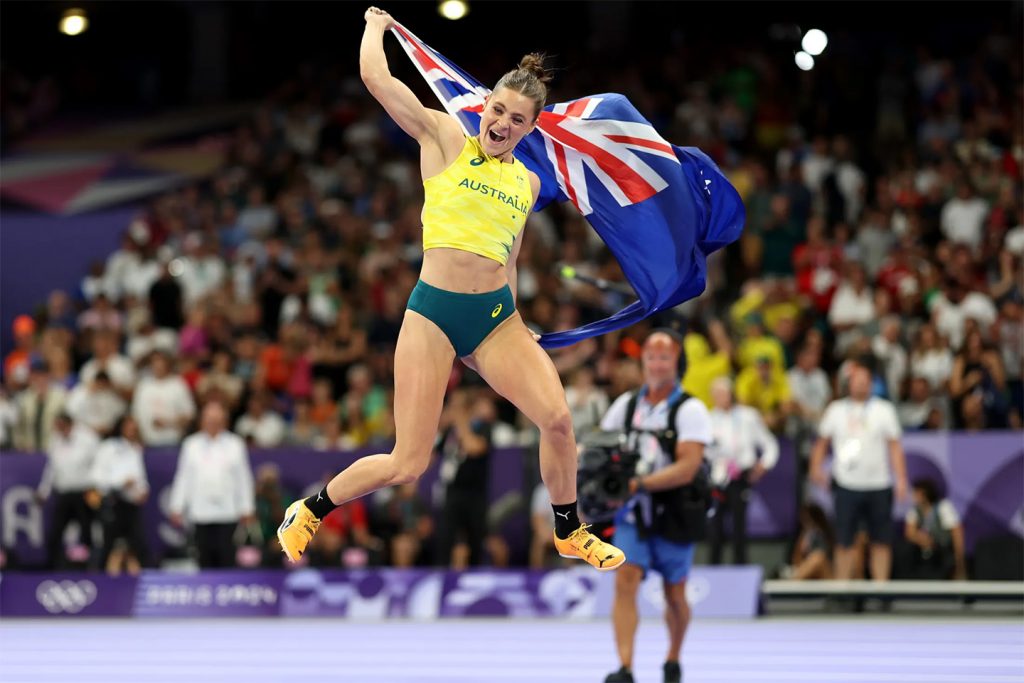
The combined effort made this the best performance in terms of total medals won at a non-Australian Games.
Australia finished the Olympic Games in fourth place on the gold medal tally behind China, the United States and Japan.
The performance was driven by female athletes who won 72 per cent of Australia’s gold medals, building on a trend in recent Games. Australia’s female athletes have outperformed their male counterparts at four of the past five summer Olympic Games.
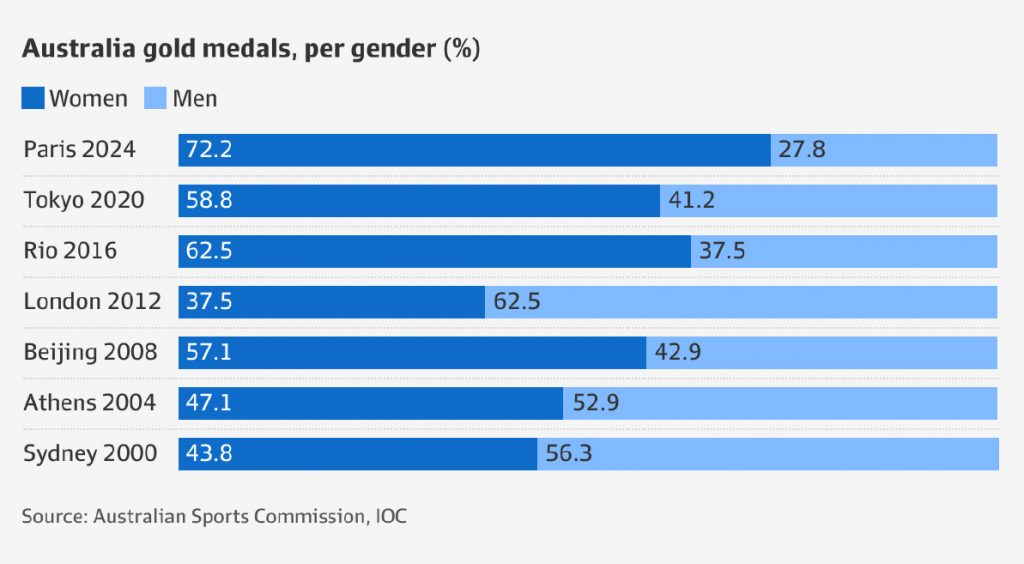
It was also the best performance when comparing the number of events to the amount of gold medals won by Australia since Athens. Australia won 18 from 329 events – about 5.5 per cent share of the total amount available.
It is logical to think money leads to medals, and that is typically the case. Swimming, for example, received $12.1 million in funding from the taxpayer-funded Australian Sports Commission last financial year. The Dolphins team has 19 medals to show for the funding, including seven golds. Sailing, which received $9.1 million in funding for high-performance programs, won a gold medal and a silver.
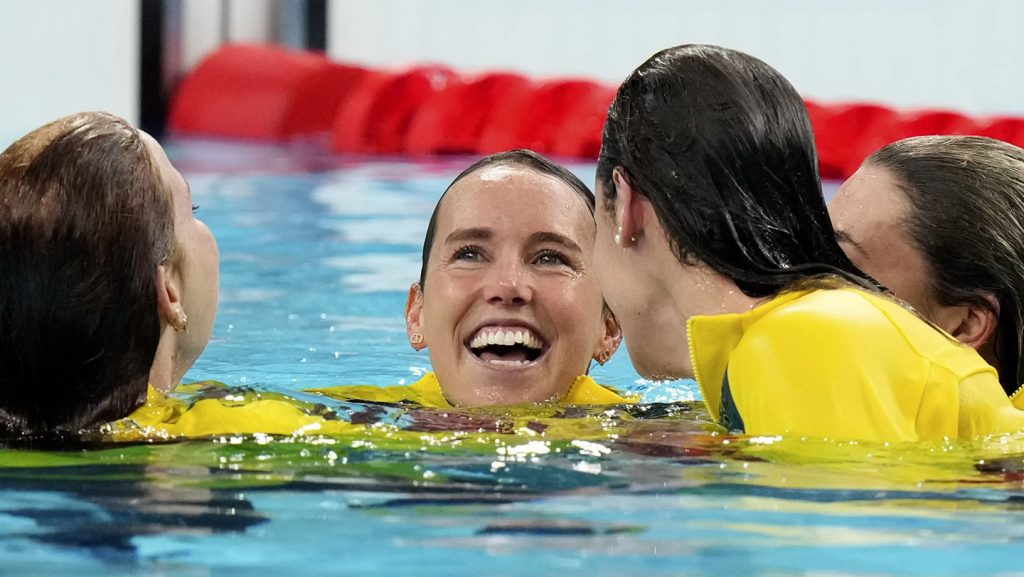
Cycling, which received more than $8.7 million in high-performance funding, delivered three gold medals and eight in total (if you include BMX racing). The gold medal on the men’s pursuit team was the first since Athens 2004.
Skateboarding received $1.4 million in high-performance funding last year and delivered two gold medals. All these sports also receive philanthropic and sponsorship support, but the high-performance funding gives some indication of how money can translate into results.
However, there are other sports – rowing, beach volleyball, and hockey – where the money hasn’t translated into medals.
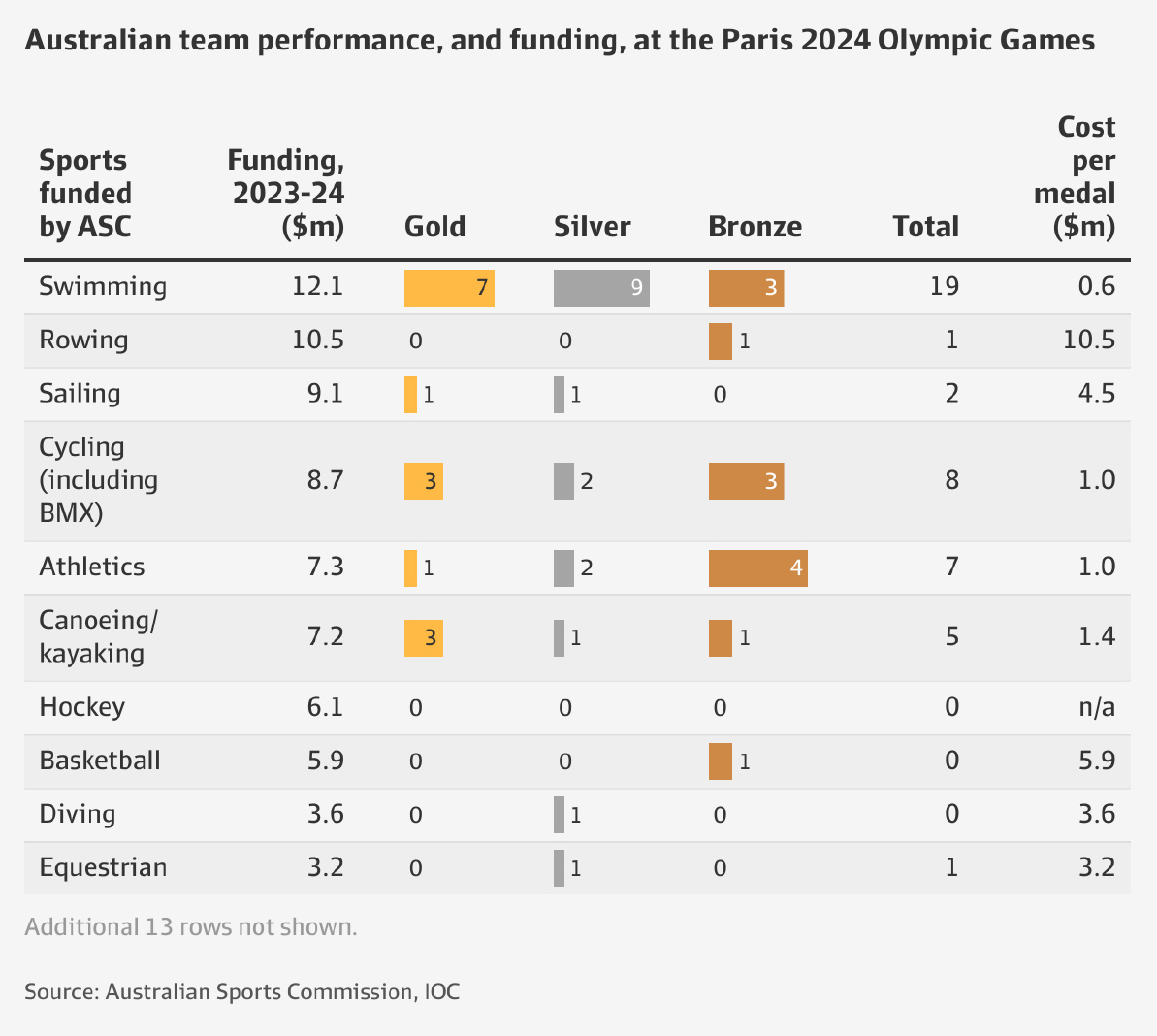
Rowing received more than $10.6 million in high-performance funding from the Australian Sports Commission (and more from billionaire Gina Rinehart) in the last financial year. But the team brought home just one medal – and bronze – making it the worst performance in more than 30 years.
“The rowing was a very great disappointment,” Coates says, adding that hockey and beach volleyball also performed below expectations. “The rowing has traditionally been Australia’s third or fourth most successful sport. I wouldn’t criticise any of the rowers per se, but Rowing Australia has already indicated that they are not renewing 80 per cent of their coaching staff.
“They know they have to turn it around.”
Coates is largely pleased with the results, but says Australia can do better. Australia won medals in 20 of the 32 sports on offer. The country tends to struggle in combat sports such as wrestling, taekwondo and judo and others like weightlifting – where there are 20 or so medals up for grabs.
But there is another factor. Russia, which won 71 medals in Tokyo 2020, 20 of them gold, was not on the Paris medal table.
That haul was “distributed” to other countries, he says. “Of the neutral athletes, they ended up winning four medals so that meant there were some 67 medals shared around,” he says.
“At home games, we should be aiming for third on the gold, and third on the total medal tally which is what we achieved in Sydney (if you take out Russia).
“There’s no use relying on swimming. You have to cover more sports, if you are going to do well. The medals have much more importance for a home Games.”

Coates says the key to good results is multi-faceted: it requires good athlete support, coaching, international competition, scientific and sports medicine support, and good administration. But all of that requires money, particularly with economic pressures like travel costs and investment in areas equipment and coaches. Most athletes are unable to compete in their sport full-time.
In late June, the government announced $500 million in Olympic funding, a large portion of which was allocated to the Australian Institute of Sport. The government has also doubled the amount of funding for the Paralympics.
Sports Minister Anika Wells says the performance of the team underlined why the government had invested in sport.
“Beyond the record medal haul, Paris provided endless stories of triumph over adversity making us repeatedly hug strangers and that’s why the Albanese government is backing Australia’s Olympic and Paralympic athletes with a record investment of almost half a billion dollars into high performance sport,” she says.
Coates wants funding commitments for the next eight years.
“There’s no use if you don’t continue it afterward,” he says. “The funding has to be in the pathway programs.
“Yes, there are benefactors – Gina [Rinehart] and others – and the AOC is in the position to fund its teams without asking for government money. But the sports – with a few exceptions – are doing it tough. They need support.”
Champion cyclist Anna Meares, who has run the Australian Olympic team as chef de mission, doesn’t want to focus on what will happen in Los Angeles in 2028 or Brisbane in 2032. She wants to celebrate all the successes of the team, including the silver and bronze medals and the personal bests. The way boxer Harry Garside conducted himself after bowing out early was another stand-out for her.
“I actually said to Harry ‘you have done more for the stereotype of men, mental health, and being honest and being your own friend than you could have ever done if you’d won’.”
Meares also knows she would like to do her job again if the Australian Olympic Committee allows her to. But as for success, she knows that comes down to money – and not just for the athletes.
“It’s one thing to have talent – we need the good coaches. We need a good support staff, and we can lose that into opportunities with other countries where they’re offered better pay and better conditions.
“It’s not just providing infrastructure, it’s not just funding to the athletes and sports. It’s ensuring we keep our Aussie coaches.”















